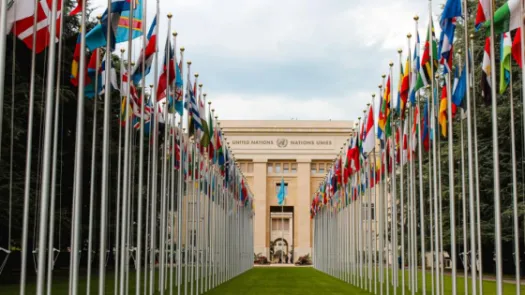
Comments on the Zero Draft of the UN Global Digital Compact
Privacy International and other CSOs present their main comments and recommendations on the Zero Draft of the UN Global Digital Compact.
- We welcome the references to human rights contained in the Zero Draft
- Generic references to 'human rights' need to be further elaborated and specified to reflect language adopted in UN General Assembly and UN Human Rights Council resolutions.
- There are significant gaps in the Zero Draft which need addressing, notably regarding: state surveillance, such as biometric, including facial recognition, technologies; the use, sale, transfer and export of surveillance technologies; the regulation of public-private partnership in the digital sphere; and the details on the scope of legal and policy framework applicable to companies which process personal data for commercial purposes.

In September 2020, the Secretary-General in September 2021 released his report Our Common Agenda, and it proposed a Global Digital Compact (GDC) which was expected to “outline shared principles for an open, free and secure digital future for all”. The GDC is expected to be agreed at the UN Summit of the Future in September 2024.
Following some initial consultations, a Zero Draft of the Global Digital Compact was published on 1 April 2024, and the co-facilitators outlined the set of next steps ahead of further negotiations.
Privacy International has joined other civil society organisations in sharing our comments on the Zero Draft.
Privacy International's comments cover the following issues contained in the Zero Draft of the UN Global Digital Compact:
- Human Rights principle;
- Accountability;
- Promotion of encryption;
- Corporate responsibilities;
- Data privacy;
- Cross-border data flows;
- Artificial Intelligence;
- Mechanisms of follow up and review.
The suggestions we have made reflect language adopted in UN General Assembly and UN Human Rights Council resolutions (including on right to privacy in the digital age, on new and emerging technology, and on Artificial Intelligence.)
In addition, Privacy International has contributed to the response presented by the Digital Health and Rights Project (DHRP), a consortium that draws on a rich history of experience and expertise in human rights and global health governance, particularly the HIV and AIDS response, and Digital Transformations for Health Lab. Amongst other recommendations, the response recommends that health be integrated into the GDC as a key sector that is impacted by and will continue to be significantly transformed by digital technologies and AI.
You can find both of sets of comments attached below.



